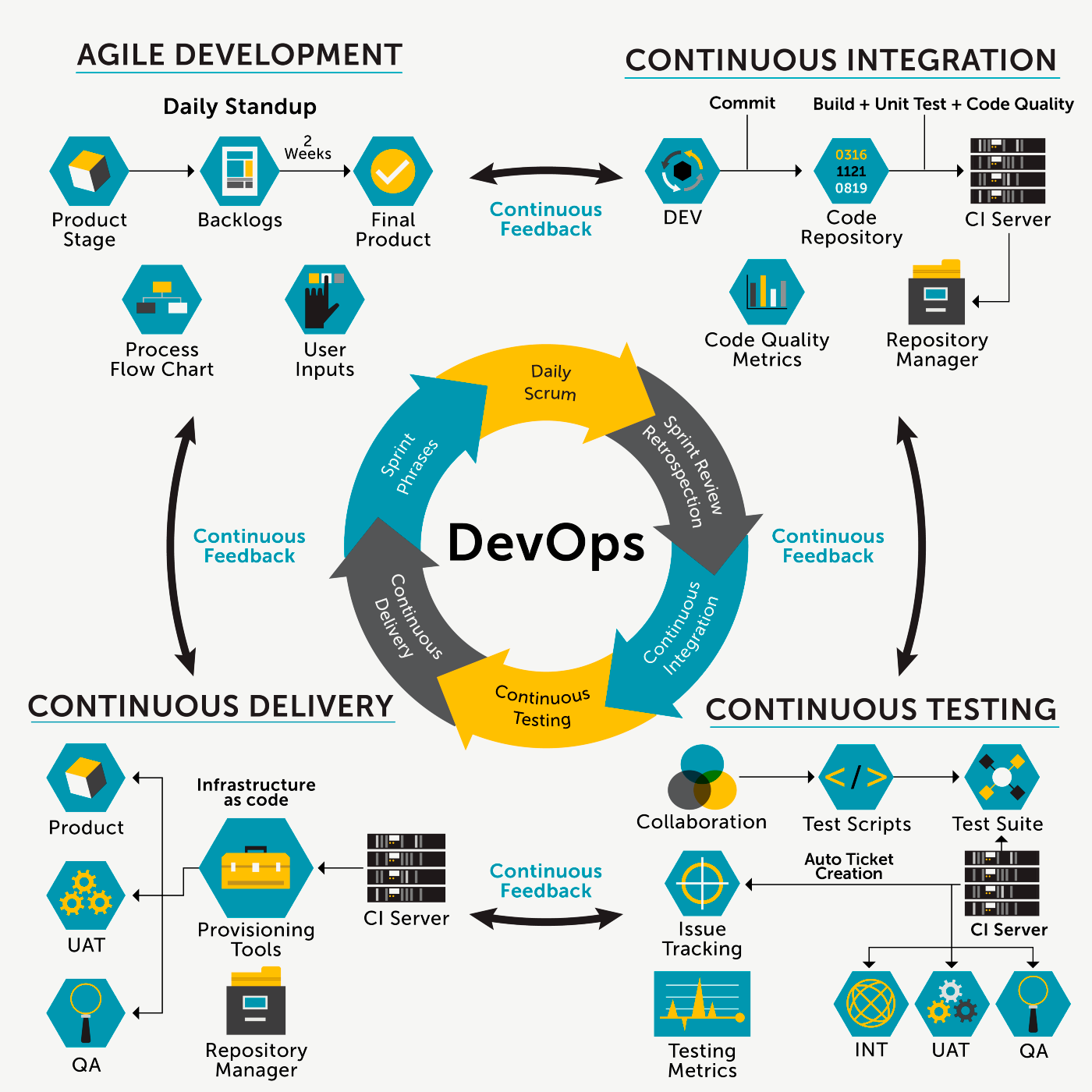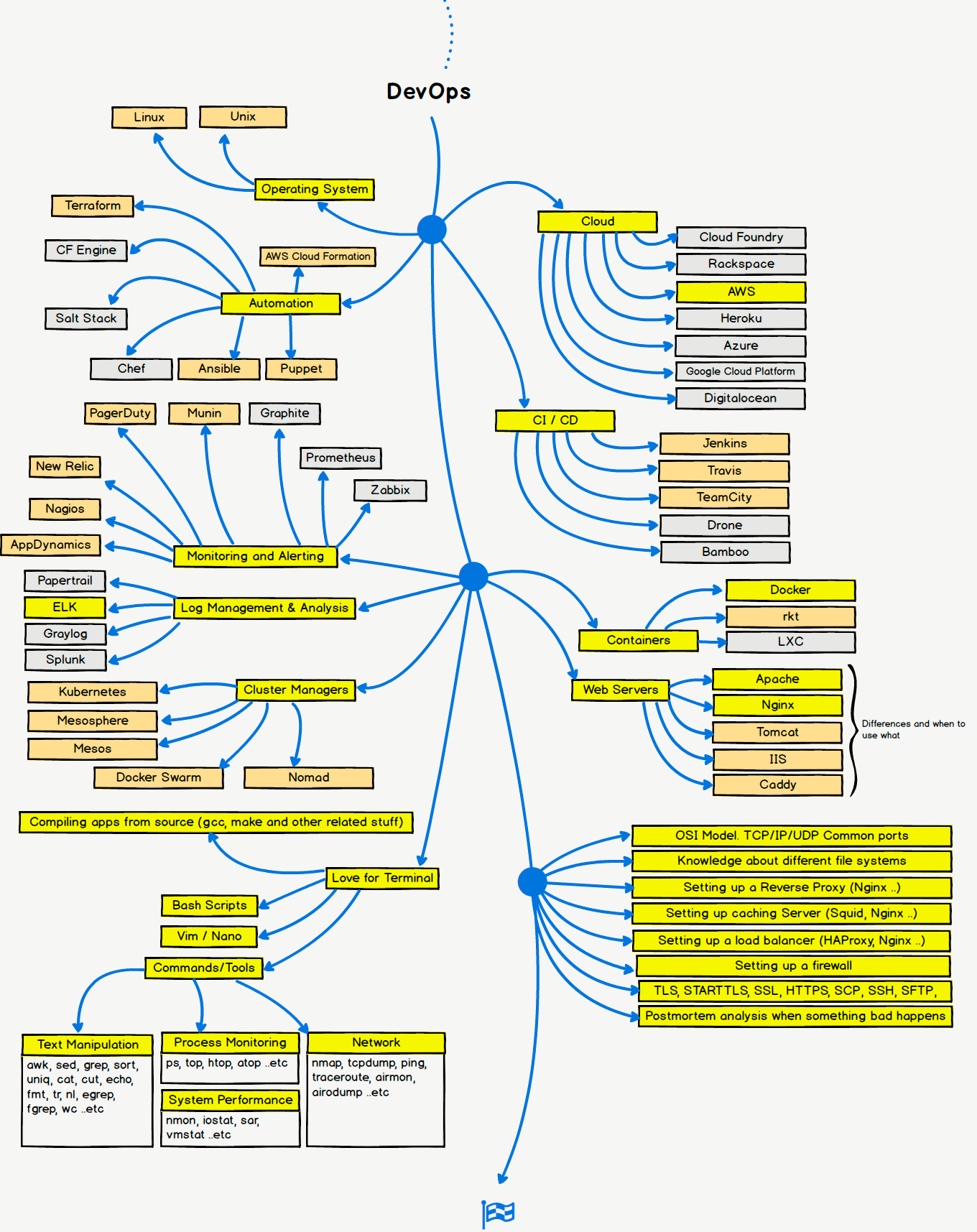
DevOps solutions
Your company should respond market demands as quickly as possible. You will not be able to meet customer requirements if you wait for the quarterly release of a new software version or for adding new features to the next release of the product. However, this is exactly the principle of the traditional IT infrastructure. That is why it is not able to provide the efficiency necessary to meet market needs. Sequential development is a weak point that needs to be eliminated. It consists of repetitive processes, including engineering, code writing, system testing, stress testing and user acceptance testing. Deployment is performed only after all of these procedures have been completed.
To interrupt this endless series of costly delays, software development methods need to be transformed. Using a set of methods and processes called continuous delivery it is possible to accelerate the delivery of software and faster provide it to users without compromising on quality.

For using continuous delivery model, it is necessary to transform IT-service with the following key building blocks:
- continuous integration when developers are registering code and creating software quietly often;
- application of continuous integration principles to automated deployment;
- conveyor from several versions;
- infrastructure as a code model when it is enough to run just one script to allocate resources and return the environment to its normal state;
- minimal differences between production and testing environments;
- releases without downtime.
DevOps Services helps to transform the entire software development cycle. Proven methodologies developed by EMC consultants will help to improve application development and deployment by eliminating isolated storage points in organizational infrastructure. With their help, it is possible to automate software testing, optimize version control management and increase the efficiency of the software development cycle.

Work at high speed to quickly implement new opportunities, better adapt to changing markets and more effectively achieve your business goals. The DevOps model will help your development and operation teams achieve all of these goals. For example, microservices and continuous delivery allow teams to take control of services faster and then quickly update them.
Control the quality of application updates and infrastructure changes to ensure reliable and fast product development and save end-user loyalty. Continuous integration and continuous delivery methods help to test the functionality and security of each change. Monitoring and logging allows to track performance in real time.
Manage infrastructure development and support processes and ensure their stable operation at any scale. Automation and consistency will help manage complex or changing systems efficiently and with reduced risks. For example, infrastructure as a code contributes to more efficient management of development, testing and operation environments and also ensures their reproducibility.
Create more effective teams using the DevOps cultural model, which exalts such values as complicity and responsibility. Development and operation teams work closely with each other sharing most of their responsibilities and integrating their work processes. This reduces irrational actions and saves time (for example, it reduces the time for transferring from developers to maintenance engineers and eliminates the need to write code taking into account the environment in which it will be launched).
Develop quickly, keeping control and observing all requirements. The DevOps model can be deployed without compromising security through automated compliance policies, fine-tuning and configuration management methods. For example, using infrastructure as code and policy as code, it is possible to define requirements and then track their compliance at any scale.





